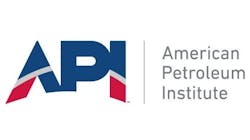How should claims for lubricant sustainability be substantiated?

The American Petroleum Institute (API) has published API Technical Report (TR) 1533, Lubricants Life Cycle Assessment and Carbon Footprinting – Methodology and Best Practice, which defines terminology and identifies industry-specific practices for life-cycle assessment of lubricants and specialty products. The purpose is to promote harmonization and consistency in the application of life cycle assessment (LCA) and carbon footprints of products (CFP) across the lubricants industry. This publication will help to enhance customer confidence with product benefit claims related to sustainability.
“As sustainability has become a global focus across all industries, there is a need for the lubricants industry to have a clearly defined, consensus-based document capturing the broadly accepted terminology and methodology for life cycle analysis of lubricant products,” said API Senior Program Manager, Engine Oil Licensing & Certification System (EOLCS) Jeffrey Harmening. “Lubricant customers are increasingly asking lubricant marketers for sustainability metrics; developing guidelines for calculating metrics became a critical area for API to focus on as the industry seeks to reduce and evaluate greenhouse gas emissions.”
API TR 1533 addresses the need for clear and accepted guidelines and terminology which will instill confidence in the reported metrics coming from oil marketers who will be better equipped to substantiate their own data and sustainability reporting. This lubricant-focused methodology will not only provide guidance for the lubricant producers but also give their customers additional confidence in the data they receive. The report will also help to move toward harmonized practices and to reduce individual requirements across global markets. It is available to all free of charge on the API website.
Development of API TR 1533
Life Cycle Assessment (LCA) and Carbon Footprints of Products (CFP) are established methodologies used to quantify the environmental performance of products, processes, or services, and are increasingly being used as a basis for environmental decision-making along the supply chain. LCA includes multiple impact categories while CFP focuses specifically on the impact category of “climate change,” which is associated with greenhouse gas (GHG) emissions/removals.
The framework for creating API TR 1533 is based on standards from the International Organization for Standardization - LCA (ISO 14040/14044) and CFP (ISO 14067). These standards provide guiding principles; however, choices are still left to the practitioner performing the study. These choices can have significant impacts on the outcome of a performed assessment. Alignment on these choices is needed to allow for a fair comparison of results from different studies. API TR 1533 seeks to further define these choices.
The API Lubricants Group began this work in June 2021, gathering subject matter experts to define terminology and outline the methodology for LCA assessment of lubricants in the marketplace. API will continue to work with industry SMEs to further refine this document with a view to developing an API Standard in the future.
General principles of API TR 1533
API TR 1533 defines the six stages of the lubricant life cycle which provide the industry with specific parameters for evaluation. These are the following:
• Raw materials
• Production
• Packaging
• Logistics
• In-use
• End-of-life
API represents all segments of America’s natural gas and oil industry, which supports more than ten million U.S. jobs and is backed by a growing grassroots movement of millions of Americans. Our 600 members produce, process and distribute the majority of the nation’s energy, and participate in API Energy Excellence, which is accelerating environmental and safety progress by fostering new technologies and transparent reporting. API was formed in 1919 as a standards-setting organization and has developed more than 700 standards to enhance operational and environmental safety, efficiency and sustainability.

